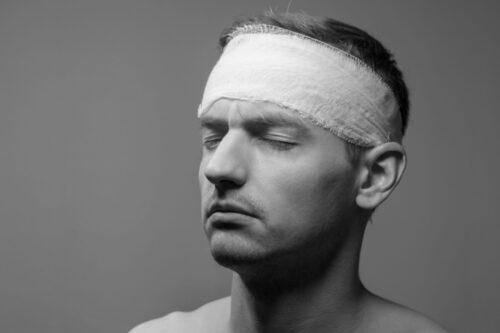
Many of the most common types of traumatic brain injury feature non-specific signs and symptoms. This can be the case whether the injury arose from a sports concussion, a motor vehicle crash, a fall or other inciting event. One of these non-specific signs and symptoms of a concussion is fatigue. Please read on and contact an experienced Connecticut brain injury lawyer to learn what you should know about chronic fatigue after a concussion.
What causes chronic fatigue after a concussion?
There are a host of potential explanations for a patient suffering from chronic fatigue after a concussion. Disruption of the normal balance of function of the brain, or homeostasis, can account for fatigue. The disruption of the brain can exist even if CT scan and MRI are reported as normal. Similarly, a concussion can also produce metabolic imbalances, including injury to the pituitary gland, or disrupt sleep that in turn can disrupt glymphatic clearing that cleans the brain of toxins and cellular debris following injury. Anxiety and depression following an injury can also contribute to fatigue.
How do you know if you have chronic fatigue?
Chronic fatigue is one of the most frequently reported and long-lasting symptoms following a traumatic brain injury. Following even the slightest traumatic brain injury, your brain redistributes its energy to permit the body to respond to injury. Everything now takes a little more energy than before. As a result, this can make you feel tired and cause you to lose energy quickly. Enhanced sensitivity to effort and limited endurance for sustained physical and mental activities are the main characteristics of chronic fatigue. If you experience any of these symptoms, please do not hesitate to reach out to a skilled Fairfield County, Connecticut personal injury lawyer today.
Can you sue for chronic fatigue stemming from a concussion?
The short answer to this question is “yes.” You can claim damages for a concussion and any of its other deleterious effects, as well as seek compensation for most economic and non-economic damages that you suffered as a result of the injury.To give your case the best possible chance for a favorable outcome, you and your attorney will need to collect and present the following evidence:
- Statements from witnesses
- Testimony from experts
- Medical records
- Relevant photographs
Let us fight on your behalf to hold the negligent party or parties responsible and obtain the compensation you need to recover from your injuries.
Contact our experienced Connecticut Firm
If you or a loved one have sustained a traumatic brain injury due to another person’s negligence, Casper & de Toledo is here to help you. While our firm has dedicated decades of experience to fighting for brain injury victims, we also handle auto accidents, medical malpractice, workers’ compensation and wrongful death. Trust Casper & de Toledo to handle your case with the utmost competence and discretion. Contact us today to schedule your free initial consultation with our seasoned traumatic brain injury lawyers

